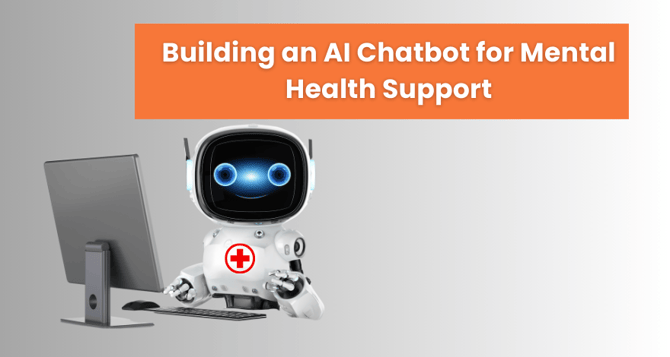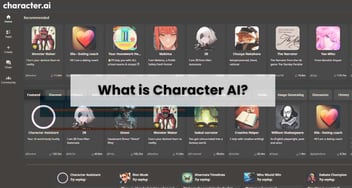Building an AI Chatbot for Mental Health Support
Explore the transformative journey of crafting an AI Chatbot for Mental Health Support. Delve into the integration of empathetic AI, learn how it enhances user experience, and discover the potential impact on mental health accessibility. Uncover the challenges, solutions, and the promising future of AI-driven mental health support.

In the evolving landscape of healthcare, artificial intelligence (AI) is making significant strides, particularly in the realm of mental health support. One promising application is the development of AI chatbots designed to provide empathetic and timely assistance to individuals dealing with mental health challenges.
In this article, we will explore the technical aspects of creating an AI chatbot for mental health support and how it can contribute to improving access to mental health resources.
Understanding the Need
Mental health issues affect millions worldwide, yet there remains a significant gap in accessibility to support services. AI chatbots present an innovative solution by offering a scalable and readily available platform for users to seek guidance, share their feelings, and receive support.
Technical Implementation
1. Natural Language Processing (NLP):
Implementing a robust NLP system is crucial for the chatbot to understand and respond effectively to user input. NLP allows the chatbot to analyze and comprehend the nuances of human language, facilitating a more natural and empathetic conversation.
2. Sentiment Analysis:
Integrating sentiment analysis algorithms enables the chatbot to gauge the emotional tone of user messages. This functionality helps the bot respond appropriately, offering empathy and understanding tailored to the user's emotional state.
3. Contextual Understanding:
Building a chatbot with contextual awareness ensures that the conversation flows seamlessly. By remembering and referencing previous interactions, the chatbot can provide more personalized and relevant support to users over time.
4. Machine Learning Models:
Incorporating machine learning models allows the chatbot to continuously improve its responses based on user feedback and evolving language patterns. This iterative learning process enhances the chatbot's ability to adapt to individual user needs.
5. Privacy and Security Measures:
Given the sensitive nature of mental health conversations, implementing robust privacy and security measures is paramount. Utilizing end-to-end encryption and strict data protection protocols ensures user confidentiality and trust in the chatbot platform.
User Experience
1. User-Friendly Interface:
Creating an intuitive and user-friendly interface is essential for individuals seeking mental health support. The chatbot should be easily accessible via various platforms, including web and mobile applications, to accommodate diverse user preferences.
2. Personalization:
Tailoring the user experience based on individual preferences and needs enhances the effectiveness of the chatbot. Personalization may include adjusting language style, and response frequency, and providing relevant mental health resources.
Conclusion
The development of AI chatbots for mental health support represents a groundbreaking approach to addressing the global mental health crisis. By combining advanced technical implementations with a user-centric focus, these chatbots can play a crucial role in providing timely, accessible, and empathetic support to individuals in need.
As technology continues to advance, the integration of AI in mental health care holds the potential to revolutionize the way we approach and prioritize mental well-being.


%201-1.webp?width=148&height=74&name=our%20work%20(2)%201-1.webp)


.png?width=344&height=101&name=Mask%20group%20(5).png)

















